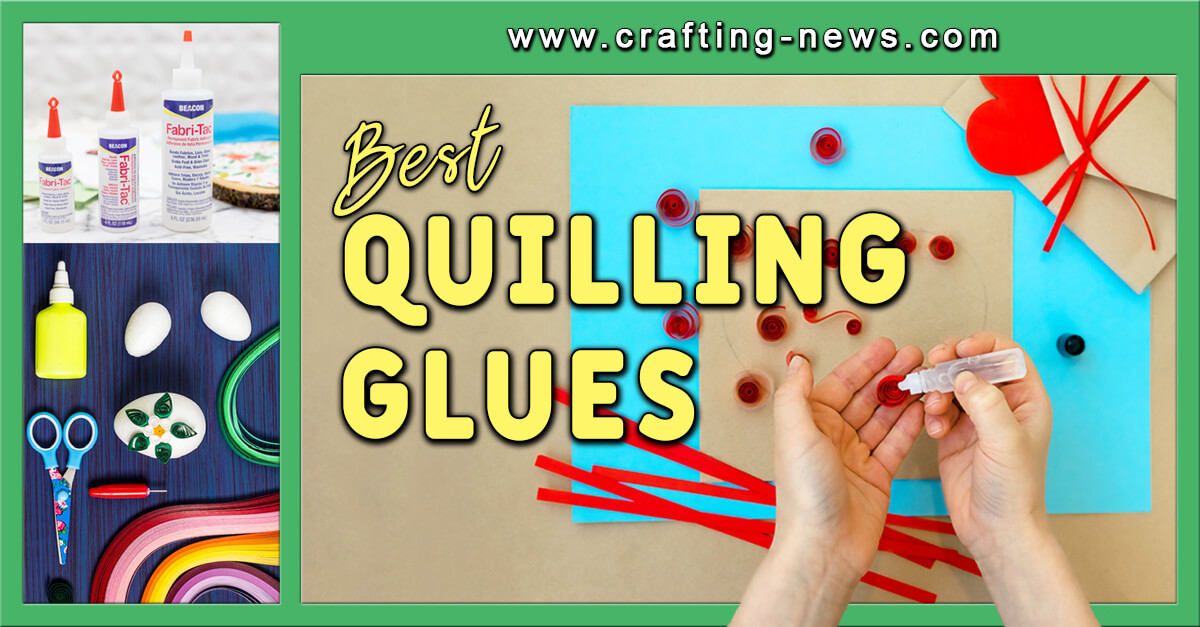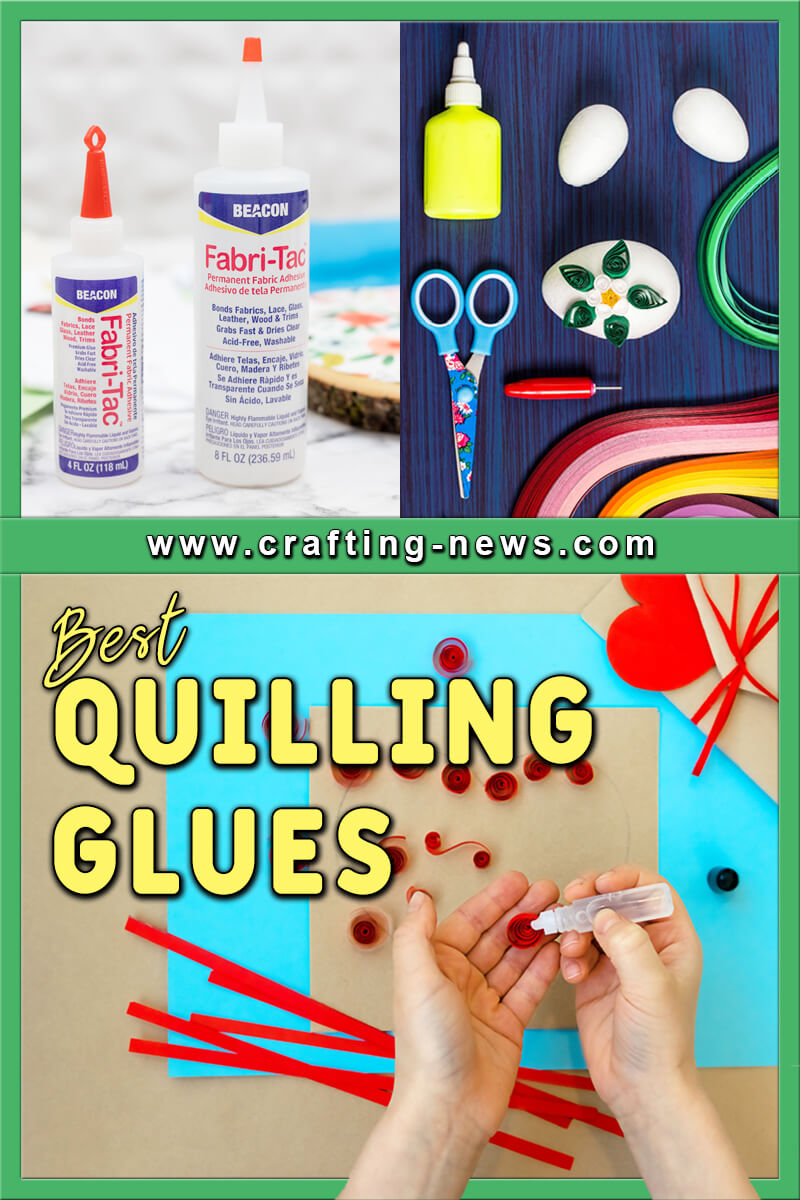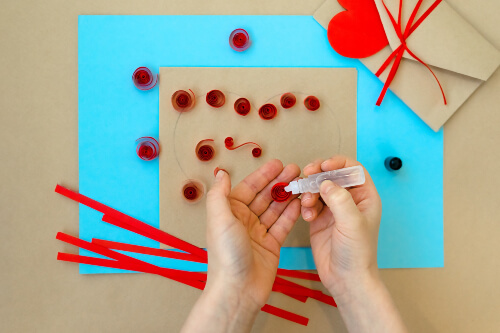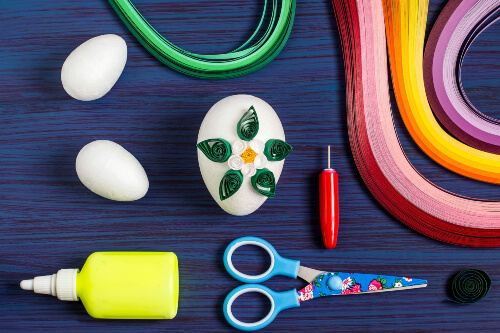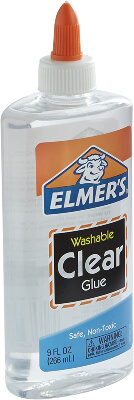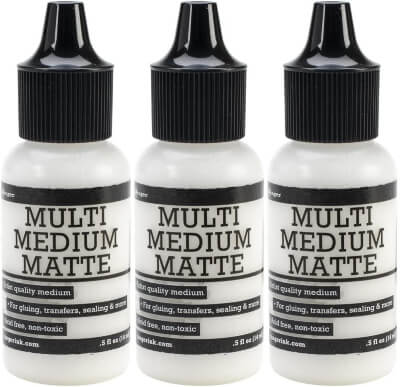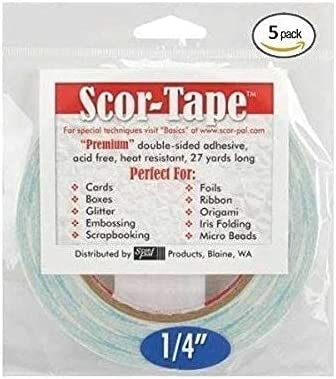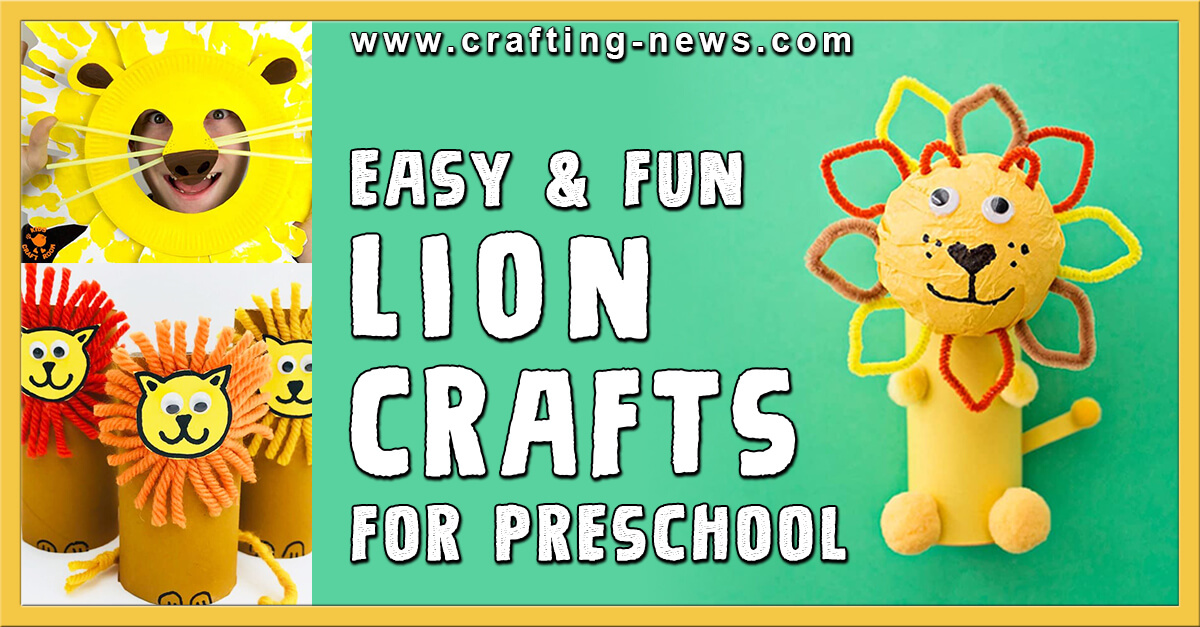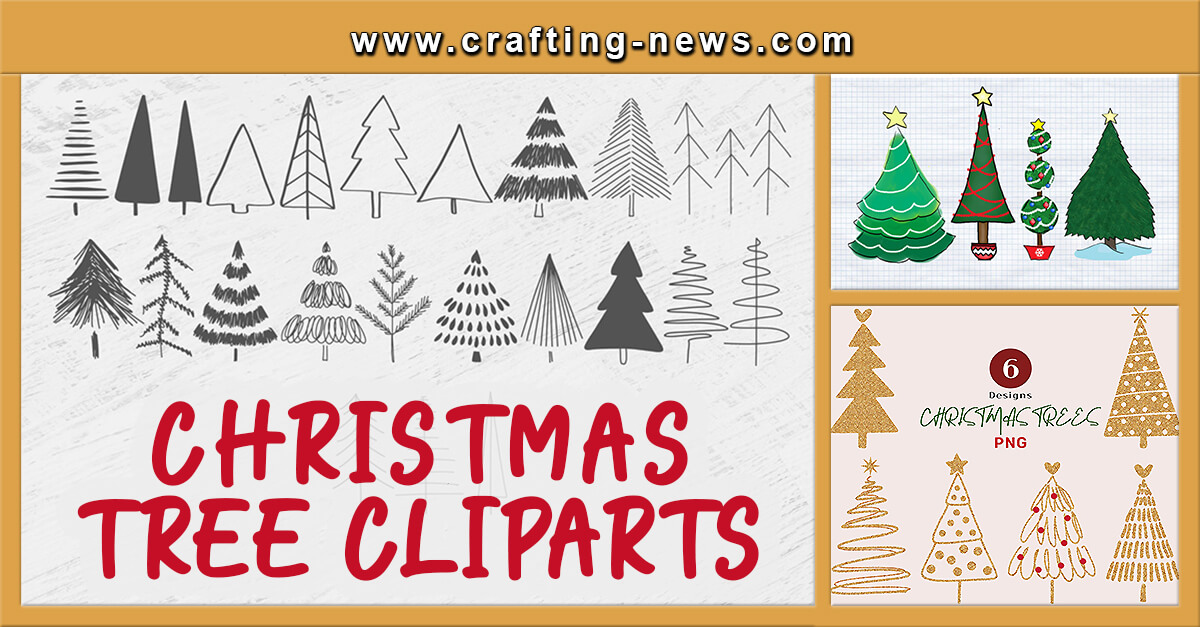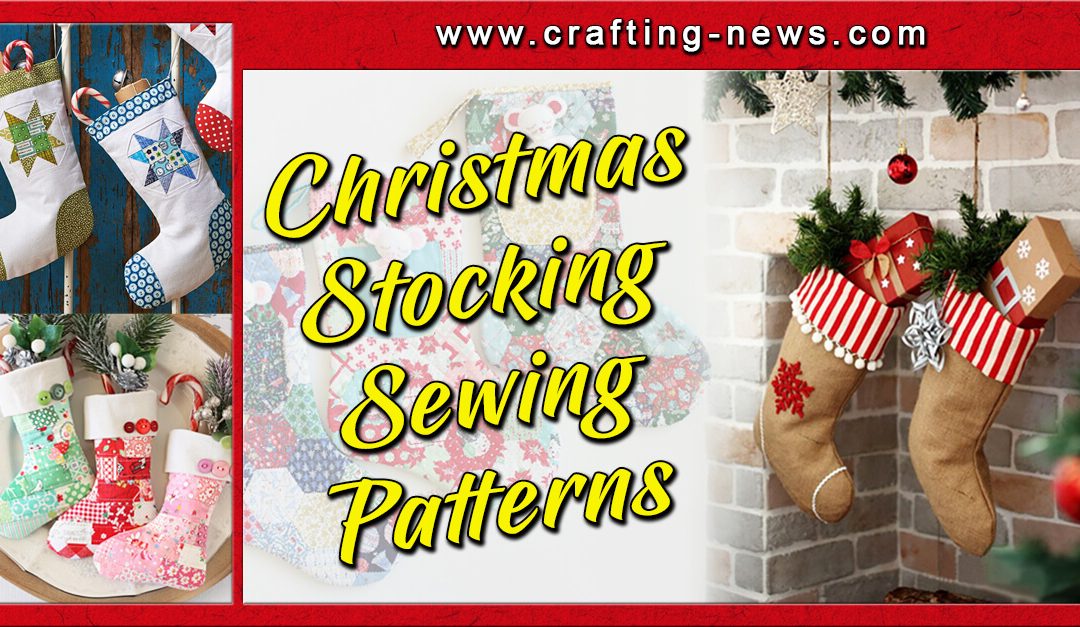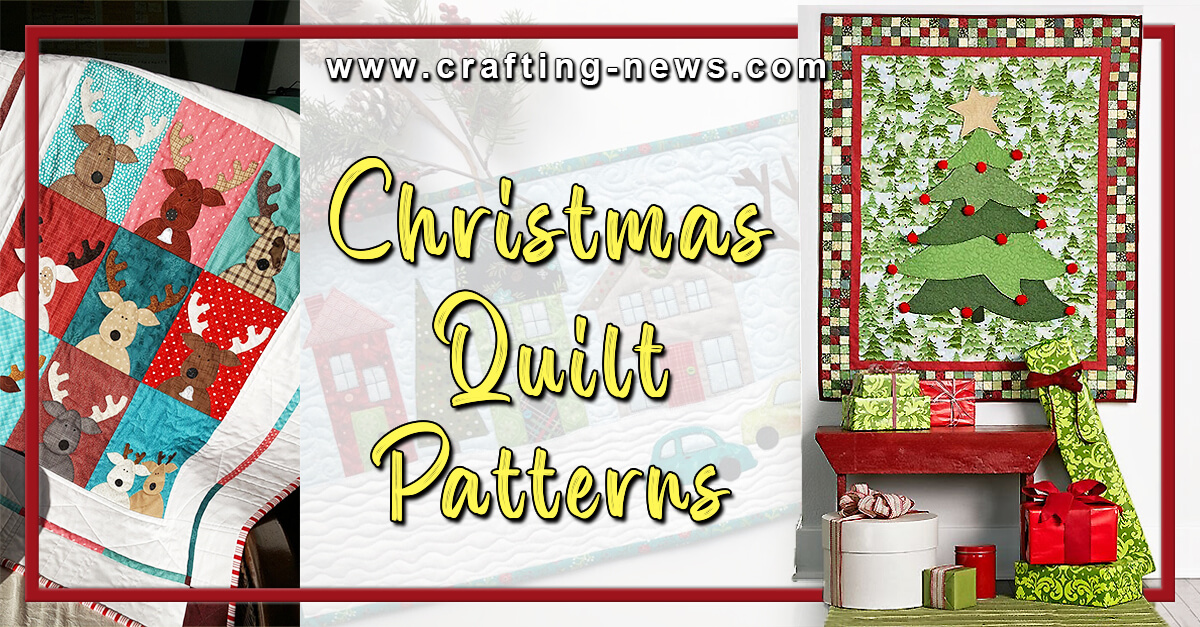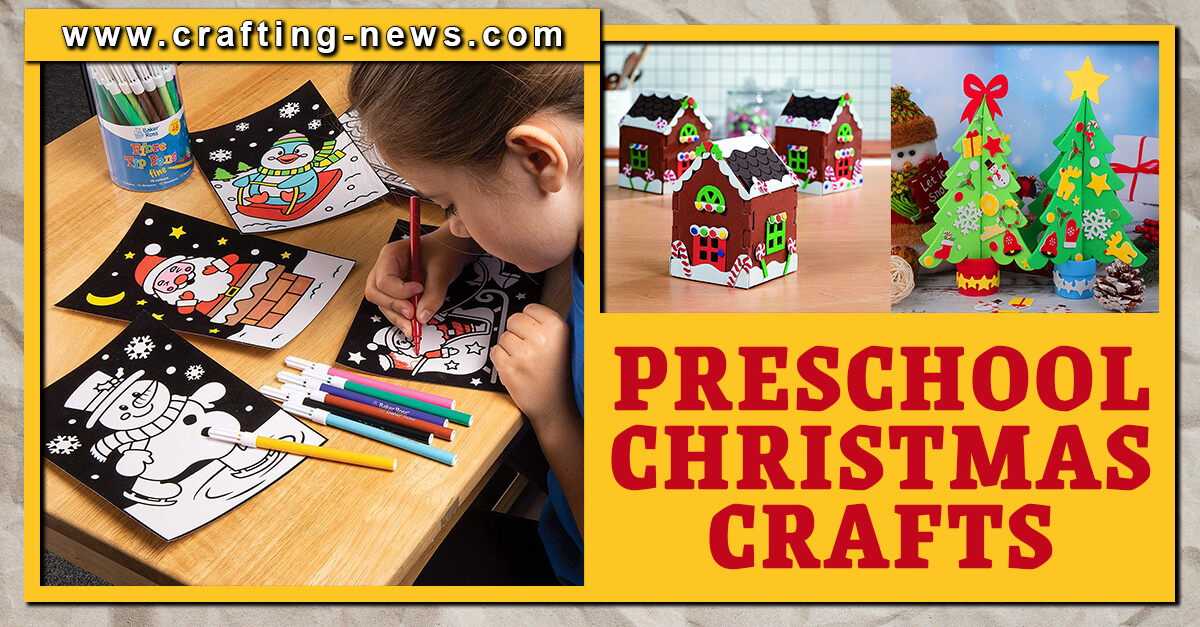Quilling is the art of rolling, shaping, and gluing thin strips of paper to create intricate designs. It is a popular papercraft that has been enjoyed for centuries.
Quilling can be used to create a wide variety of designs, from simple shapes to elaborate works of art. However, if you do not use the best glue for quilling, your designs can come undone or look stained. In this article, I will examine some of the best quilling glues on the market.
How to Choose the Best Quilling Glue
When picking your quilling glue, look for a clear glue that dries transparent. You do not want glue that leaves any visible residue on the paper after it dries. Using clear drying quilling glue is very important for the aesthetics of your project.
Using clear quilling glue ensures that your finished product looks clean and professional. It is the best choice for quilling because it provides a strong hold and is practically invisible when it dries.
Different Types of Quilling Glue
Choosing the best glue for quilling can be confusing. There are so many different types of adhesives on the market. Below, I have listed the different types of quilling glue, their features, and the pros and cons of each.
Here are the most popular types of glue for quilling:
1. PVA Glue
PVA glue, is also referred to as school glue or white glue. It is a popular choice for quilling.
Pros:
- Strong hold
- Widely available
- Affordable
Cons:
- Dries slowly
- Can cause wrinkling if too much is used
- Can yellow over time
2. Glue Pen
Glue pens have a fine tip that makes it easy to apply glue to small areas. They are convenient and can help reduce messes.
Pros:
- Precise application
- Very little mess
- No waste
- Quick drying
Cons:
- Not great for large areas
- Can be costly
- Pen can clog
- May be difficult to find locally
3. Double-Sided Tape
Double-sided tape is a quick and easy way to adhere quilled shapes to paper or other surfaces.
Pros:
- No drying time
- No Mess
- Precision application
- Strong hold
Cons:
- Not great for tiny areas or large areas
- Expensive
- Sticks immediately and cannot be repositioned
- Can be visible when dry
- Needs to be cut
4. Glue Dots
Glue dots are small, pre-cut circles of adhesive that can be used to attach quilled shapes to paper or other surfaces.
Pros:
- Easy to use
- Mess free
- No drying time
- Come in different sizes
- Strong hold
Cons:
- Limited coverage
- Reduced flexibility
- Expensive
- Thicker than other glues
5. Tacky Glue
Tacky glue is a thicker and stronger adhesive than PVA glue. It is ideal for attaching heavier or larger quilled shapes.
Pros:
- Strong hold
- Flexible
- Widely available
Cons:
- Dries slow
- Messy
- Using too much can cause bulk
- Can cause wrinkling
6. Hot Glue
Hot glue can be a strong and versatile adhesive option for quilling, especially for those who want a fast-drying and durable hold.
Pros:
- Strong hold
- Fast drying
- Precision tip application
- Durable
Cons:
- Messy
- Can get burned
- Can dry bulky
- Limited flexibility
- Heat can damage delicate paper
Best Glue for Quilling for 2025
Below are 7 of the best brands of glue for quilling. These glues are perfect for beginners and experienced quillers alike.
1. Perfect Paper Adhesive
Perfect Paper Adhesive is a popular choice among quillers. It has a strong hold and clear-drying formula. It is water-resistant, flexible, archival safe, and UV resistant. You can also use it as a sealant on a variety of surfaces. PPA is acid-free and non-toxic, making it safe to use on all types of paper.
2. Aleene’s All Purpose Tacky Glue
Aleene’s Tacky Glue is a versatile adhesive that works great for quilling. It has a strong hold and dries clear, making it ideal for a variety of paper crafts. It is also non-toxic and will not yellow over time.
3. Elmer’s Liquid School Glue
Elmer’s Clear Glue is an extremely popular choice for quilling due to its affordability and accessibility. It dries clear, is easy to work with, and is non-toxic. The tip allows for precision application.
4. Beacon Fabri-Tac Permanent Adhesive
Beacon Fabri-Tac quilling glue has a strong hold, making it perfect for quilling. Fabri-Tac is toxic when wet. However, once it dries, it is no longer toxic. It is fast grabbing, quick drying, permanent, crystal clear, and flexible.
5. Ranger Multi Medium Bottle
Ranger Multi Medium Matte is extremely versatile. The medium is a high quality acrylic gel that can be used as a strong adhesive, acrylic paint extender, or sealer. It dries clear and will not yellow.
6. Scor-Tape Double-Sided Tape
Scor-Tape is a double-sided adhesive tape that works well for quilling. It has a strong hold and is easy to work with. Scor-Tape is also heat-resistant and can be used with embossing powder and glitter.
7. Mono Multi Liquid Glue Carded
Tombow Mono Multi Liquid Glue has a strong hold and dries clear. It also has a dual-tip applicator, which makes it great for fine and broad application. Tombow Mono Multi Liquid Glue is acid-free and photo-safe. This makes it a great choice for quilling and other paper crafts.
Frequently asked questions about quilling glue
What kind of glue should I use for quilling?
The best quilling glue is a strong, clear drying, and easy to work with. Some popular options include Perfect Paper Adhesive, Aleene’s Tacky Glue, Elmer’s Clear Glue, Ranger Multi Medium Matte, and more. Ultimately, the best quilling glue for you will depend on the specific needs of your project, as well as your personal preferences.
Is it necessary to use a clear drying glue for quilling?
Yes, it is very important that you use clear drying glue for quilling. A clear drying glue will not leave a visible residue on the paper after it dries. This is essential for maintaining the aesthetic integrity of your quilled designs. A clear drying glue will allow the intricate details of your quilled designs to stand out, without a hazy or cloudy appearance.
Can I use regular school glue for quilling?
Some types of regular school glue can be used for quilling. However, it may not always be the best choice. Most school glues are not strong enough to hold intricate quilling designs. School glues may also leave a visible residue after drying. If you choose to use school glue, make sure to test it before you start your project.
Can I use a glue stick for quilling?
Glue sticks can be used for quilling, but they usually do not have a strong enough hold. Over time, the glue may fail, and the quilled pieces will come unrolled. For this reason, it is recommended to use a stronger adhesive, such as tacky glue or clear PVA glue.
Can I use a hot glue gun for quilling?
While a hot glue gun can be used for quilling, it is not usually recommended. Hot glue guns can cause burns and the heat can potentially damage delicate paper strips. In addition, hot glue can dry too quickly not allowing for necessary adjustments.
Is quilling glue safe for children to use?
Most quilling glues are non-toxic and safe for children to use. But before you allow your children to use any glue, it is important to check the label. Children should always be supervised when using any type of adhesive.
How is Quilling Glue Applied?
Quilling glue can be applied to your quilling project using a toothpick, a small paintbrush, a glue bottle with a fine tip, or a precision applicator. It is important that you do not use too much glue, as it can cause the paper to become soggy.
Use the right and the best quilling glue for your quilling projects
There are many different types of quilling glues you can use. Each one has its own pros and cons. When choosing a quilling glue, it is important to consider factors such as strength, clear-drying formula, and ease of use. The above-listed quilling glues are some of the best options available and are sure to deliver excellent results.
If you are new to quilling, check out this article: Paper Quilling Tools and Quilling Templates. You can also head on to our Facebook Page for more fun crafting projects.

